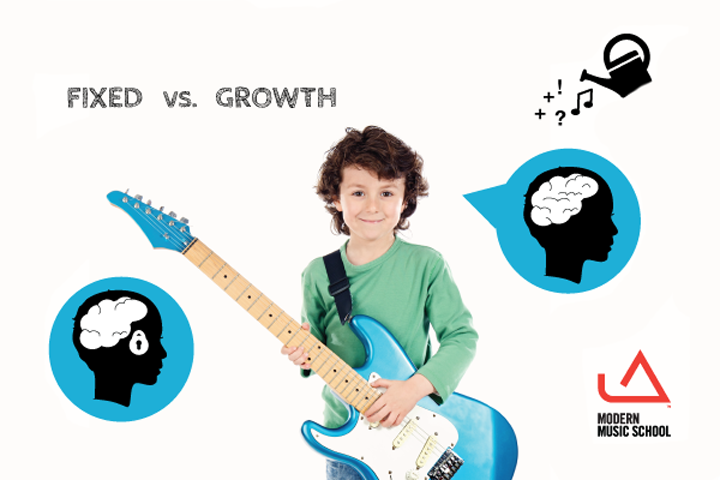Learning Mindsets (Part 1): Why you should never tell your children they’re smart
Latest Posts • February 17, 2015
If we asked you to name some of history’s greatest geniuses, Mozart would probably come to mind. He might as well be the poster-child for the idea of a “natural born” genius – but the latest research shows that there’s no such thing as a “natural” genius at all.
Carol Dweck, psychologist at Stanford University and leading researcher in the field of motivation, puts it nicely when she says, “even geniuses work hard.”

In her book “Mindset” she asks, “is it ability or mindset? Was it Mozart’s musical ability or the fact that he worked till his hands were deformed?” (Shocking but true: evidently Mozart worked so hard that by the time he was twenty-eight years old his hands were deformed because of all the hours he spent practicing and performing.)
It turns out Mozart became Mozart-the-genius not solely because of his musical gifts but also because he was extremely disciplined and worked furiously hard.
Dweck’s research found that most people follow one of two mindsets: fixed or growth. Fixed mindsets (mistakenly) believe that people are either smart or not and that intelligence is fixed by genes, whereas people with growth mindsets (correctly) believe that ability and intelligence can be grown through effort, struggle and failure.
Now, we’re not suggesting that you put a Mozart-esque effort into playing your instrument until your hands are deformed but we do want you to understand that what you think about learning really matters.
As soon as you believe that you can overcome challenges with hard work and effort (“growth mindset”) you can embrace tasks you struggle with and view them as opportunities for learning. On the other hand, if you believe that ability is innate (the “fixed mindset”), you tend to avoid challenging tasks. You focus your effort on tasks you’re already good at to increase your likelihood of success. You might think that if you have to work hard at something, it must mean you’re not smart.
As you can imagine, those with a growth mindset become more resilient and ultimately more successful. They are actively pushing themselves to their limits and growing intellectually.
So can we foster a “growth mindset” in other people?
Yes, mindsets can be taught, they’re a malleable asset.
One way of changing people’s mindsets is by giving them the right kind of praise. For a long time parents and educators believed that praising kids for their intelligence would give them the self-confidence they needed. But now we know that this is wrong. Instead, it’s processes kids engage in that we want to praise. Dweck suggests to praise their engagement, their effort, their strategies, their focus, their perseverance, their improvement.
This “process-based praise” acknowledges the effort and keeps students motivated, hardy and resilient. The old-school talent-praise only reinforces the notion that one only succeeds (or doesn’t) based on a fixed trait.
We’ve seen this time and time again at Modern Music School: students enjoy and play their instruments MORE after receiving feedback that praises their perseverance and grit.
Process praise at Modern Music School might sound like this
-
“I can tell you played at home, your improvement shows it. You must have really tried to memorize it. That really worked!”
-
“I like the way you tried to play this tricky part over and over again until you finally got it.”
-
“That was a really hard song to play, but you stuck to it and played to the end. That’s great!”
At MMS we want to truly boost our students’ motivation, resilience, and learning.
We want students to stay focused on the processes of achievement and always remind them that they can grow their abilities – and even their intelligence – with effort. We want them to understand it isn’t something they’re just born with. Nurturing their “growth mindset” can help students grasp their true potential, it transforms their definitions of effort and difficulty.
Effort and difficulty may have made them feel dumb, and like giving up in the past, but now effort and difficulty become evidence that they’re getting smarter, because the best way we can grow our intelligence is to embrace tasks we might struggle and fail at.
To explain this, we even teach our students some of the neuroscience around learning, including that the brain is malleable just like a muscle, and that the more you use it, the more it grows. But more about that in the next blog post of our series on “Learning mindsets.”
Today we want to finish off with a few process-based praise examples Dweck offers that teach students to enjoy the process of learning. The following examples express positive views of challenges, effort and mistakes:
-
“Boy, this is hard—this is fun.”
-
“Oh, sorry, that was too easy—no fun. Let’s do something more challenging that you can learn from.”
-
“Let’s all talk about what we struggled with today and learned from. I’ll go first.”
-
“Mistakes are so interesting. Here’s a wonderful mistake.”
-
“Let’s see what we can learn from it.”




Leave A Comment